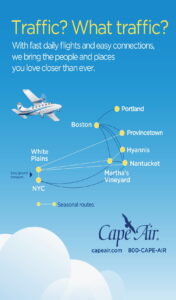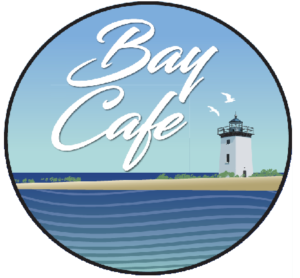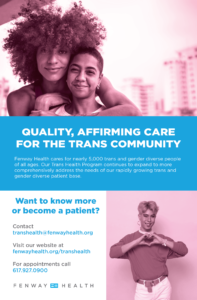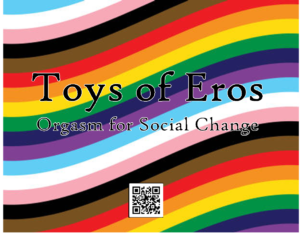Transweek Today and The Fantasia Fair Journey
Fantasia Fair’s history is well-known, and yet details have been lost to history. Most of the founders and early participants are no longer with us. Those who remain are living history, possessing knowledge not preserved in the various printed, photographic, and videographic records of the early Fairs.
Fortunately, most of Fantasia Fair’s media records have been preserved in places like the University of Victoria in British Columbia, the University of Michigan, the Digital Transgender Archive, the photographic Archives of Mariette Pathy Allen, and, in Provincetown, at the Pilgrim Monument and Provincetown Museum. From them we can reconstruct much–but hardly all–of the Fair’s history.
What a great dissertation topic Fantasia Fair would make!
 Fantasia Fair has been called the queen of all transgender events, and with good reason. We are in our fifth decade, and every Fair since the very first in 1975 has been absolutely fabulous. We are part and parcel of the fabric of Provincetown and the transgender community. Many of yesterday’s and today’s community leaders cut their teeth at the Fair, and many who attend today are destined to become tomorrow’s leaders. Fantasia Fair has grown and evolved since its early days, when it was considered an event for well-to-do crossdressers. The Fair has always been open to everyone, but in its first decade, attendees were mostly white and middle-class and identified as crossdressers. Today’s attendees are diverse and identify in all sorts of ways. The Fair’s planners and attendees have long worked to reach all sections of our diverse community– not always with success.
Fantasia Fair has been called the queen of all transgender events, and with good reason. We are in our fifth decade, and every Fair since the very first in 1975 has been absolutely fabulous. We are part and parcel of the fabric of Provincetown and the transgender community. Many of yesterday’s and today’s community leaders cut their teeth at the Fair, and many who attend today are destined to become tomorrow’s leaders. Fantasia Fair has grown and evolved since its early days, when it was considered an event for well-to-do crossdressers. The Fair has always been open to everyone, but in its first decade, attendees were mostly white and middle-class and identified as crossdressers. Today’s attendees are diverse and identify in all sorts of ways. The Fair’s planners and attendees have long worked to reach all sections of our diverse community– not always with success.
The Fair was rebranded as Transweek in 2022 to reflect the ever changing make up of our transgender community.
Our programs have evolved too, from an emphasis on beauty, comportment, and fashion to a healthy mix of transgender history and culture, gender theory, activism, spirituality, personal growth, relationship issues, and yes, personal presentation.
We have learned much since that first Fantasia Fair in 1975, and there is still much more to learn. Come and learn with us!
Behind the Scenes: Fantasia Fair's Leadership
Early Days

Ariadne Kane. Photo by Mariette Pathy Allen
As noted elsewhere on this page, Fantasia Fair was started in 1975 by members of the Cherrystone Club, a Boston-based group of crossdressers. Betsy Shaw and Linda Franklin were two of the founders, and there were certainly others whose names, unfortunately, we do not know–but we do know one other founder–Ariadne Kane. Ari emerged as the driving force behind Fantasia Fair and remained so through the end of the twentieth century, running it under the auspices of the nonprofit Human Outreach and Achievement Institute.
Fantasia Fair was but one of Outreach’s projects. Ari spoke widely on crossdressing and their identity as an androgyne, appearing on nationally televised programs like The Phil Donahue Show. Outreach held symposia on gender theory in a day when gender theory was not even a concept, published the excellent Journal of Gender Studies, and created the New Woman Conference, which allowed post-operative transsexuals to come together to share their experiences. Along the way, the organization changed its name to Outreach Institute for Gender Studies and acquired 501(c)(3) status with the IRS.
Fair Directors

Betty Ann Lind
The top Fantasia Fair leadership position was Fair Coordinator. We’re not sure who the coordinators were in 1975 and 1976, as there were no program books to tell us. Nancy Ledins was coordinator in 1977 and 1978. We don’t know who the coordinator was in 1979, but the program book mentions Betsy Shaw, Paula Neilson, Linda Franklin, Rowena Burke, Nancy Ledins, Denise Reinecke, Diane Berry, Jarah Chandler, Elanda Merz, Winnie Brandt, Rachia Heyelman, Merissa Sherrill Lynn, Ariadne Kane, Delores Carter, and Betty Ann Lind as instrumental in the early years of the Fair.
The late Merissa Sherrill Lynn, who would later become Executive Director of the International Foundation for Gender Education, was coordinator of Fantasia Fair 6 in 1980. Directors for 1981-1986 are unknown, but Merissa might have served after 1980. Betty Ann Lind was listed as coordinator from 1987 until 1990 in the program books and was probably coordinator for some years prior to 1987. Sadly, many programs book don’t list key Fair personnel.
The program books for 1990 and 1991 list the Outreach Institute as coordinator for the Fair. Betty Ann Lind, who had long produced the Fantasia Fair Follies talent show and who served as coordinator for at least four years, was involved busy with the publishing company Reluctant Press, and in bad health, so Executive Director Ari Kane and the Outreach Board, which consisted in 1990 and 1991 of Hugo Hollerorth, Marilyn Volker, Alison Laing, Katrina Rodis, Chris Howey, Yvette DuCharme, Betty Ann, Rony Stevens, William R. Stayton, and Reinhardt (“Bud”) Heuer provided oversight.

Dallas Denny
The coordinator isn’t mentioned in the 1992 or 1993 program books, but Dallas Denny, who attended those years, remembers it was Ari–so most likely the Fair Coordinator was again officially the Outreach Institute.
At the 1993 Fantasia Fair, attendees, staged a coup of sorts. Ariadne Kane was struggling to hold things together, but attendance was down and the program was shaky. Fairgoers formed a committee and immediately began to plan and run the 1994 Fair. The Fair continued to run under the auspices of the Outreach Institute, but had taken control of its future.

Dottie (L) and Alison Laing
Alison Laing served as Fair Coordinator in 1994 and 1995, and Dottie Laing in 1996. Weslee Avery was Coordinator in 1997, Alison again in 1998, and Canadian Pamela Geddes in 1999. Alison was named Fair Director in 2000, marking a change of name for the top management position, The Fantasia Fair Coordinator was now the Fantasia Fair Director. (The new title might actually have given in 1999. We’ll have to wait until we get our hands on a copy of that year’s program book before we’ll know for sure.

Miqqi Alicia Gilbert
In 2001, Dallas Denny became Fair Director. In October, Fantasia Fair separated itself from the Outreach Institute and began the formation of a new nonprofit, Real Life Experiences–so named because Fantasia Fair provides just that–an entire week of living authentically.
Dallas served as director through 2007. Miqqi Alicia Gilbert then assumed the role and served until 2014. Barbara Curry was director in 2015 and 2016, and the multi-talented Jamie Dailey in 2017.
In 2018, for the first time, Fantasia Fair had neither a director nor a coordinator. Members of the planning committee Dallas Denny, Dee LaValle, Karen Jandro, and Temperance DuWitt shared responsibility for planning and running the 2018 Fantasia Fair, with technical assistance from ex-Director Miqqi Alicia Gilbert. Dallas is Board Chair of Real Life Experiences, which will maintain oversight of the Fair through the end of October. The new organization Transgender Education Association, designed to become a 501(c)(3) ,will launch at the 2018 Fair and assume fiscal responsibility for the Fair.

Dee LaValle
At the conclusion of the 2018 Fair, Dee LaValle was named the current TransWeek Fair Director. Dee has brought innovation to many aspects of the Fair’s operation and presentation. The 2019 Fair was extremely successful and poignant in celebration of the Fair’s 45th Anniversary, highlighted by a keynote address from the Fair’s founder Ariadne Kane. With planning underway for the 2020 Fair, the COVID-19 global pandemic caused the Committee and Board to announce the cancellation of that years Fair. Despite that, the planning committee pivoted to develop a plan to host the Fantasia Fair Follies show virtually over the internet. The Fair returned triumphantly to Provincetown in 2021. The Fair was rechristened to TransWeek in 2022 under Dee’s tutelage. TransWeek edition #49 is set to kick off on October 16th, 2023 as planning for the TranWeek 50th Jubilee commences.
Volunteers and Committee Members
Fantasia Fair is an all-volunteer organization. Everything it was, everything it is, and everything it will be is due to volunteers, many of whom dedicated hundreds of hours over time spans as long as three decades.
It would be impossible to mention the many people who have made the Fair work, but we will name at least some of them. Our apologies for anyone we might have forgotten. We’ll be happy to modify this page to add names of the worthy.

Dainna Cicotello was Office Mgr for Years
Most Fair Directors worked years before being named to the top position, so needless to say, the founders, coordinators, and directors listed in the section above should be considered as included here.
Here’s our very partial list of names. These are the folks who contributed over a long period. Nancy Ledins, Betty Ann Lind, Brandy Alexander, Delores Carter, Merissa Sherrill Lynn, Mariette Pathy Allen (who was for many years the Fair’s official photographer), Andrea Susan and her son Gary, who shot video over several decades, Naomi Owen, Chris Howey, Emily Sheldon, the crew from Andy Turocy’s inn Roomers, Helen Strong, Stephanie Pierce, Holly Boswell, Dainna Cicotello, Katherine and Lauren Bode, Stephany Fountain, Marilyn and Linda Frank, Dawn Marie Vaux, Brenda Viola, Jo Utscheig, Robin Cowart, Donna Johnston, Mark Rosen, Mary Beth Cooper, Barbara Curry, Susan Curry, Phyllis Fink, Kerri Reeder, Liz Winter, Jan Brown, Cody Suzuki, Karen Jandro, Carolyn Caywood, Jolie LaValle, Rhonda Williams, Retired Provincetown Police Sergeant Carrie Lopes, Robyn Bazlen-Weglarz… we could go on and on!
Professional Staff
Many helping professionals have given of their time and money to work with Fairgoers, some for many years. Here’s a partial list: Niela Miller, Roger Millen, Diane Ellaborn, Anton Kisiel, Dick Doctor, Marilyn Volker, Sandra S. Cole, Dotti Berry, Moya Andrews, Reinhardt (“Bud”) Heuer, Leslie Whitehouse, Hera Navassardian, Dan McKeon, Carolyn Wolfe-Gould, Maureen Osborne, and Carole MacKenzie.
Attendees
Fantasia Fair would not exist if not for those of you who come. Many of you come every year, or nearly every year, for decades. We acknowledge you here not just for showing up, but for the many volunteer activities you undertake. Thank you!
In 1975, Fantasia Fair was conceived by Ariadne Kane and others in Boston’s Cherrystones support group in response to a need for a safe space for crossdressers and transsexuals to gather. “There is a tremendous need for crossdressers and transsexuals to learn about themselves in an open, socially tolerant environment,” said original co-founder Betsy Shaw. “We wanted to have a program that can help us grow in practical, social, and educational ways,” said another founder, Linda Franklin.

Sunday Service at U.U. Meeting House in Early Days. Photo by Mariette Pathy Allen
Provincetown was picked as the host city because of its reputation for tolerance and because it was a center of gay and lesbian culture. Its location at the very end of Cape Cod provided isolation and therefore peace of mind for frightened first-timers. Besides, the mid-October date was after P’Town’s tourist season had ended and before the town shut down, when prices were low–and so a date was set.
The first Fair was financed with loans from members of the Cherrystones. With help from Brandy Alexander and another female impersonator who lived in town, two physicians who practiced on Cape Cod, a few cosmetic consultants, and much support from local innkeepers, eateries, and the local newspaper, and with a then-astounding 40 participants, Fantasia Fair went from an idea to reality.
 Almost immediately, Fantasia Fair was getting noticed. The 1977 Fair was highlighted in Drag Magazine and in 1980 it was featured in an article in Playboy.
Almost immediately, Fantasia Fair was getting noticed. The 1977 Fair was highlighted in Drag Magazine and in 1980 it was featured in an article in Playboy.
This was an exciting time for the Fair. It was charting new ground, since there was no other transgender-related conference to use as a role model. Fantasia Fair wasn’t just a convention for transgender people—it was the convention for transgender people. In these early years, twenty years before the term transgender came into common use, the Fair served as a model for trans events all over the world. Even today, Fantasia Fair is recognized for its leadership in increasing the well-being of transgender and nonbinary people.
 From its inception, Fantasia Fair honored the spouses, partners, and families of transgender people. As early as the second Fair, there were workshops for wives and girlfriends. These early programs, which have continued for more than 40 years, stressed the importance of communications between partners and fostering growth as a couple.
From its inception, Fantasia Fair honored the spouses, partners, and families of transgender people. As early as the second Fair, there were workshops for wives and girlfriends. These early programs, which have continued for more than 40 years, stressed the importance of communications between partners and fostering growth as a couple.
Also from our first year, the Fair has hosted a staff of professionals. They present workshops, of course, but also consult with individuals and groups on speech, personal presentation, surgical options, and personal issues. One or two professionals work exclusively with relationship issues, holding sessions for groups of significant others, couples, and transpeople.
The Fair soon grew to be a 10-day event and was bonding with Provincetown and its citizens. Townies would turn out in large numbers for the Fair’s fashion show and Follies talent show. At the annual Town and Gown Dinner, curious locals would show up to find out about the “men in dresses” walking around town. It was a time of big hairdos, miniskirts, custom corsets, and disco and New Wave music.

Registration, 1987. Photo by Emily Sheldon
In these early days, registration to the Fair included not just workshops and night events, but also accommodations. Most Fairgoers stayed at the old Crown & Anchor, where all-night pajama parties were common. Many of the workshops were pay-as-you-go, meaning Fairgoers would be charged an additional ten or twenty dollars.
Events during these early Fairs were a combination of workshops geared toward improving personal appearance, and social events where Fairgoers could practice what they were learning in the workshops. Workshops covered topics such as voice modulation, building a wardrobe, and beauty and makeup. Symposia were held in conjunction with the Unitarian Universalist Church, with the primary purpose of educating the public. Each symposium was followed by question-and-answer sessions to further encourage dialog with the townsfolk.
By the mid-1980s, the Fair was attracting more and more people–some coming from as far away as South America, Australia, and Europe (here’s a partial list: Canada, England, Germany, Sweden, Belgium, Hawaii, Japan, Indonesia, Uganda, Mexico, and Venezuela). The focus of workshops was changing from topics like scarf tying and wig styling to personal development and activism. Now, with a combination of educational seminars and workshops and social events such as banquets, the FanFair Fashion Show, the Fantasy Ball, and the Fantasia Fair Follies, the Fair had become more than a vacation and more than a conference.

Alison Laing, Miqqi Alicia Gilbert w Reporter
In the mid-1990s Fantasia Fair looked and operated much as it does today. The duration was reduced from ten days to seven, the Fantasy Ball was removed from the schedule, and the Town and Gown Supper was renamed The Diversity Dinner. The Fair was no longer considered an event for crossdressers, but an event for transgender people of all types. We updated the Participant’s Guide and other publications to reflect the presence of transmasculine and nonbinary attendees. Workshops addressed emerging issues ranging from facial feminization surgery to political actions to that new thing called the internet. At the turn of the century, six keynotes would be added to the schedule–and all six were free to anyone–registered or not–who wanted to attend.
Our events and keynotes have been varied and wonderful, from a six-day symposium on gender theory to reaffirmings of marriage vows to performances by transgender artists Ian Harvey, Scott Turner Schofield, Namoli Brennett, and classical pianist Sara Davis Buechner, to a Broadway-style production of Christine Howey and Katherine Harvey’s musical The Sissy Show. There have been book launches and special showings of films like Susan Stryker’s Screaming Queens, Kate Davis’ Southern Comfort, and Annie Goldson’s Georgie Girl. There have been art exhibits, high teas, whale watches, dune tours, poetry slams, live radio shows, and even the occasional game show.
Fantasia Fair has been part of the trans and Provincetown communities for more than 40 years. During this time, it has grown and evolved from a holiday experience for transgender people to a mix of practical, social, and educational opportunities designed to enhance the personal growth and awareness of one’s own gender expression. We are happy to bring more than 1000 rooms nights, several thousand meals, and countless shopping excursions to Provincetown, and proud of having been a respected part of the community since 1975.
In some ways, the character of the Fair has changed little over the years—there is still the same warmth and camaraderie. In other ways, it has blossomed into something larger and more important than was originally envisioned.














